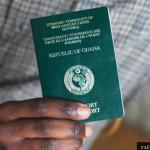Namibia's election of Netumbo Nandi-Ndaitwah as its first female president marks a significant milestone for gender equality in African politics. This historic victory adds Namibia to the short list of African nations with women at the helm, following countries like Liberia, Malawi, and Tanzania. Nandi-Ndaitwah's win represents a crucial step towards increased female representation in leadership.
Namibia has made history by electing its first female president, Netumbo Nandi-Ndaitwah, in a landmark victory for gender equality in African politics. The 72-year-old veteran politician and ruling SWAPO party candidate secured 57.31% of the vote, surpassing the 50% threshold required to avoid a runoff.
Nandi-Ndaitwah's election represents a significant step forward for women's representation in African leadership. She joins a small but growing list of female heads of state on the continent, following in the footsteps of Ellen Johnson Sirleaf of Liberia, Joyce Banda of Malawi, and Tanzania's incumbent President Samia Suluhu Hassan.
Political analyst Rekkel Andreas emphasized the importance of this moment, stating, "Namibians should celebrate her, should celebrate her victory, should celebrate the significance that she represents and women across the board should celebrate." Andreas added that Nandi-Ndaitwah embodies the ideal of gender equality in leadership.
Despite the historic nature of her win, Nandi-Ndaitwah's victory comes amid controversy. The election was marred by technical difficulties, including ballot paper shortages, which led to extended voting periods. Opposition parties, including the Independent Patriots for Change (IPC), have contested the results, citing irregularities and pledging to challenge the outcome in court.
As Namibia's fifth president since independence, Nandi-Ndaitwah faces significant challenges. These include addressing high youth unemployment, tackling corruption, and confronting the persistent issue of gender-based violence in the country. Her administration will need to balance these domestic concerns with Namibia's position as an emerging player in global energy markets, given its vast natural resources.
While Nandi-Ndaitwah's election is a clear victory for gender representation, it also marks a shift in Namibian politics. SWAPO, which has held power since independence in 1990, saw its support in the National Assembly decline to 51 seats, its lowest ever. This change reflects growing demands for economic reform and improved governance among Namibian voters, particularly the youth.
As Namibia enters this new chapter, all eyes will be on President-elect Nandi-Ndaitwah to see how she navigates the complex political landscape and addresses the nation's pressing issues. Her presidency not only symbolizes progress in gender equality but also carries the hopes of many Namibians for a more prosperous and inclusive future.
Leave a comment
Your email address will not be published. Required fields are marked *




